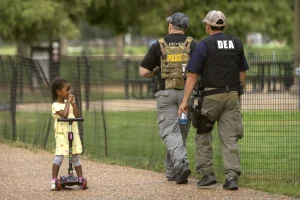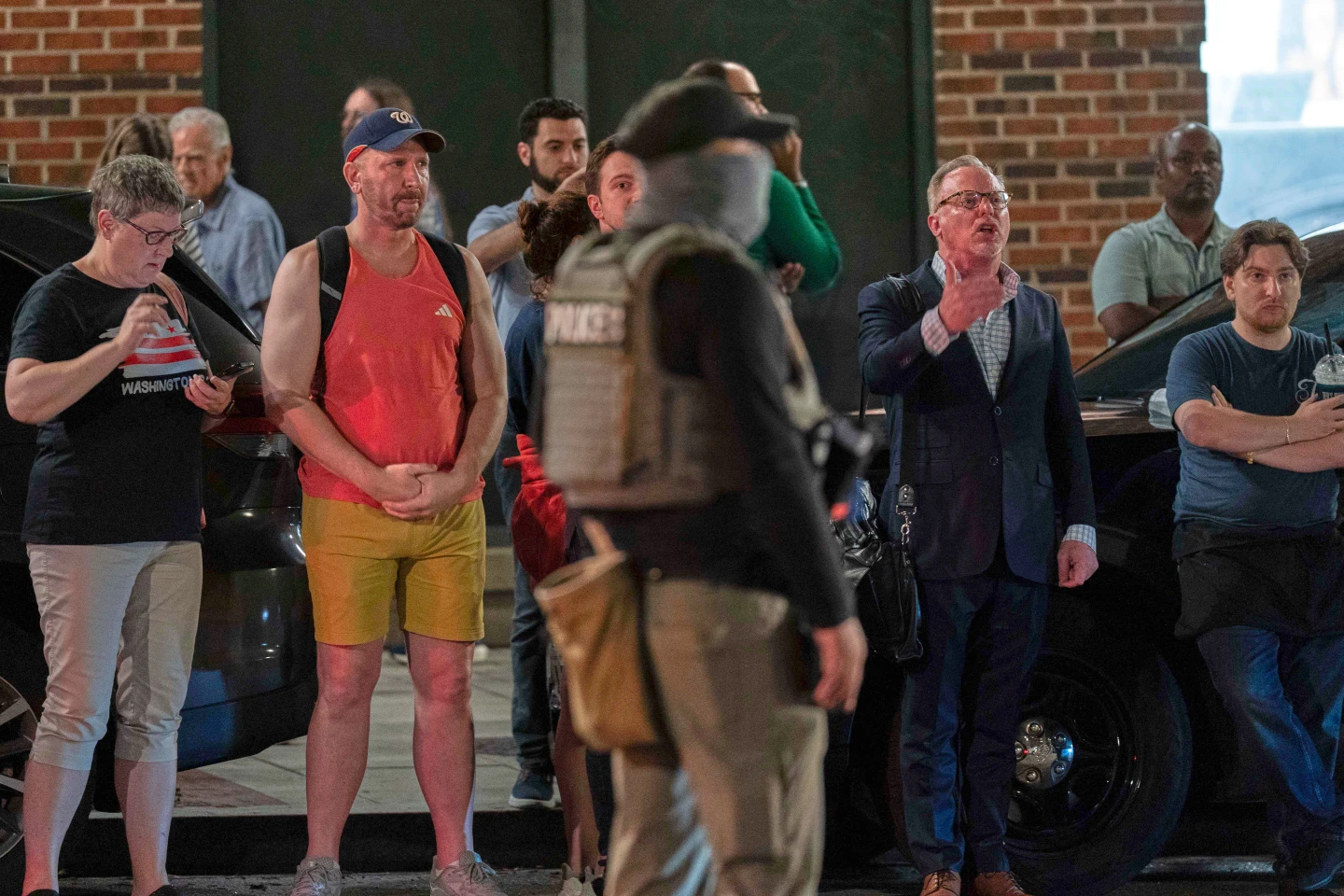Residents in one Washington, D.C., neighbourhood lined up Wednesday to protest the increased police presence after the White House said the number of National Guard troops in the nation’s capital would ramp up and federal officers would be on the streets around the clock.
After law enforcement set up a vehicle checkpoint along the busy 14th Street Northwest corridor, hecklers shouted, “Go home, fascists” and “Get off our streets.” Some protesters stood at the intersection before the checkpoint and urged drivers to turn away from it.
The action intensified a few days after US President Donald Trump’s unprecedented announcement that his administration would take over the city’s police department for at least a month.
The city’s Democratic mayor, Muriel Bowser, walked a political tightrope, referring to the takeover as an “authoritarian push” at one point and later framing the infusion of officers as boost to public safety, though one with few specific barometers for success.
The Republican president has said crime in the city was at emergency levels that only such federal intervention could fix — even as District of Columbia leaders pointed to statistics showing violent crime at a 30-year low after a sharp rise two years ago.

For two days, small groups of federal officers had been visible in scattered areas of the city. But more were present in high-profile locations Wednesday and troops were expected to start doing more missions in Washington on Thursday, according to a National Guard spokesman who spoke on condition of anonymity to describe the planning process.
On Wednesday, agents from Homeland Security Investigations patrolled the popular U Street corridor. Drug Enforcement Administration officers were seen on the National Mall, while National Guard members were parked nearby. DEA agents also joined Metropolitan Police Department officers on patrol in the Navy Yard neighbourhood, while FBI agents stood along the heavily trafficked Massachusetts Avenue.
Unlike in other US states and cities, the law gives Trump the power to take over Washington’s police for up to 30 days. Extending his power over the city for longer would require approval from Congress, and that could be tough in the face of Democratic resistance.
Trump suggested he could seek a longer period of control or decide to call on Congress to exercise authority over city laws his administration sees as lax on crime. “We’re gonna do this very quickly. But we’re gonna want extensions. I don’t want to call a national emergency. If I have to, I will,” he said.
Later, on his Truth Social site, Trump reiterated his claims about the capital, writing, “D.C. has been under siege from thugs and killers, but now, D.C. is back under Federal Control where it belongs.”
The arrests made by 1,450 federal and local officers across the city included those for suspicion of driving under the influence and unlawful entry, as well as a warrant for assault with a deadly weapon, according to the White House. Seven illegal firearms were seized.
The president has full command of the National Guard and has activated up to 800 troops to support law enforcement, though exactly what form remains to be determined.
The federalisation push also includes clearing out encampments for people who are homeless, Trump has said. People are offered the chance to go to shelters and get addiction treatment, if needed, but those who refuse could be fined or jailed, she said.
City officials said they are making more shelter space available and increasing their outreach.
The federal effort comes even after a drop in violent crime in the nation’s capital, a trend that experts have seen in cities across the US since an increase during the coronavirus pandemic.
Police Chief Pamela Smith said during an interview with the local Fox affiliate that the city’s Metro Police Department has been down nearly 800 officers. She said the increased number of federal agents on the streets would help fill that gap, at least for now.
For some residents, the increased presence of law enforcement and National Guard troops is nerve-wracking.
“I’ve seen them right here at the subway … they had my street where I live at blocked off yesterday, actually,” Washington native Sheina Taylor said. “It’s more fearful now because even though you’re a law-abiding citizen, here in D.C., you don’t know, especially because I’m African American.”


